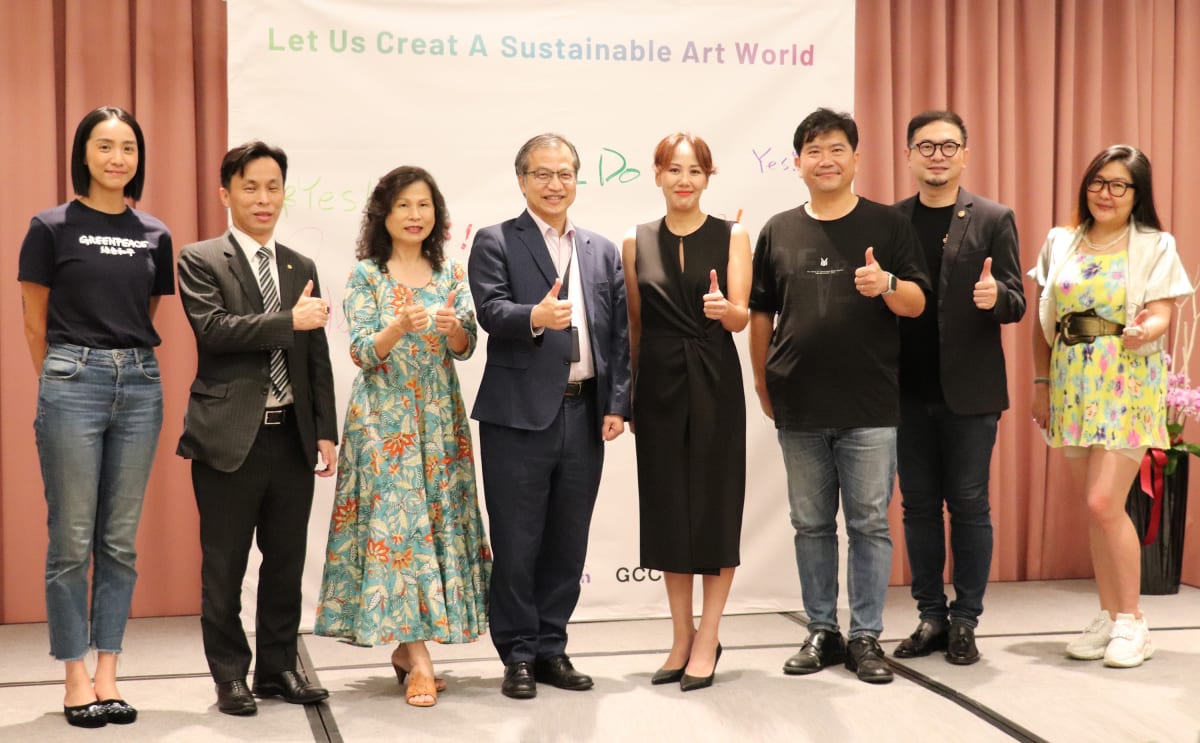In Conversation: GCC Talks To The Founding Members Of GCC Taiwan
To celebrate the formation of the new International Volunteer Group, we spoke with the founding members of GCC Taiwan.
GCC: What inspired you to form a GCC volunteer group for Taiwan and how did the team come together?
Sandy Hsiao: Coexistence and co-prosperity are the new forms that humanity needs to face in the post-COVID era. ARTrigin gallery was launched as a brand with sustainability at its core, and we discovered GCC on our way to find allies. We agreed with GCC's pragmatic style and admired its impact within the art world. We immediately joined as a member, and expressed initiative in action. We were also pleased to discover many art institutions in Taiwan that have long been concerned with ecological and sustainability issues. We all have similar ideas and recognize the importance of GCC's core purpose, so it makes sense to unite to pursue equal and sustainable social and environmental development.
GCC: Was there a specific moment that made you want to take climate action, personally?
Linda Chen: We see the plight of wildlife and feel the emergence of extreme weather phenomena brought about by environmental change; if we live in the present without taking action, it is hard to imagine how many more beautiful landscapes will be left in the future. Animals will be only seen in textbooks or paintings if they are extinct.
GCC: Is there a sense of urgency regarding discussions around the environment in Taiwan? And how engaged with these topics is the government there?
Linda Chen: Taiwan regards these discussions with the same urgency as any other country in the world. According to the International Energy Agency's 2019 data, Taiwan's per capita carbon emissions are 10.77 tons, which is 2.45 times higher than the global per capita carbon emissions, ranking 19th in the world. Taiwan's per capita carbon emissions are not only higher than those of Japan and Singapore in Asia, but also much higher than those of the Netherlands, Germany, the United Kingdom, Switzerland, Sweden, Norway and other countries in Europe.
Taiwan is highly dependent on imported raw materials and faces the risk of supplying raw materials needed for economic development and the problem of resource depletion. Both industrial transformation and improving energy and resource efficiency, and reducing energy intensity are problems. Sustainable development needs to be addressed. The Taiwanese government has developed specific strategies using economic tools for Taiwan's sustainable development goals, including carbon tax promotion, public R&D promotion, and public procurement. In addition, the 108 syllabus is promoted in the education of new generations to foster students' attention and feedback on international issues.
GCC: Which areas of environmental sustainability will the group's research focus on first?
Hsu Yu Jen & Frank Wang: To lead the art world in Taiwan, we must lead by example and implement carbon reduction actions. When the people and government of Taiwan see the sparks, it will evoke a response.
GCC: After that, what do you think are the next major steps GCC Taiwan might implement?
Sandy Hsiao & Frank Wang: To promote sustainable artist training programs zero-carbon exhibition programs; see the reduction of disposable items for exhibitions, and provide guidance on sustainable transformation of art-related industries. We will launch Taiwan's first "Sustainable Art Fair" based on the above plans. When the issues advocated by art are paid attention to, the people and enterprises will see the power sustainable transformation.
GCC: Why do you think it is important to connect and align with an international network such as GCC?
Sandy Hsiao & Frank Wang: There is only one planet. Cultural differences might lead to different human perspectives on the environment and sustainable development, however our goals must be clear, consistent, and viewed in the context of each country's unique characteristics. GCC is a global organization, guiding arts to advocate for climate action. We cannot change effectively if we all work independently. Taiwan, like all other countries, needs more cross-border integration and collective promotion to strengthen local outreach efforts and effectively achieve sustainable goals.
GCC: Is there an example of a great environmental resource that exists in Taiwan that you'd like to highlight and share with other people around the world?
Linda Chen: in 2021 Taiwan announced plans to achieve net-zero emissions by 2050. Taiwan’s Pathway to Net Zero Emissions 2050 strategy promotes four major transformations in “Energy, Industrial, Life and Social”, building on "technology research and development" and implementing a "climate legal system".
Take Taipei City as an example. In 2022, the "Taipei City Net Zero Emissions Management Autonomy Ordinance" started to be promoted. As well as specifying carbon reduction targets, it coordinates various bureaus to divide the work on carbon reduction, promotes "carbon budgeting", and discloses building energy consumption, vehicle electrification, and zero-carbon city planning. It also includes reduction of disposable products, transparency around corporate climate-related information, and implements environmental education. It has also announced the 'Climate Transition Fund' as a special fund for climate change adaptation, greenhouse gas reduction, and taking care of vulnerable groups in the climate transition.
This is a new precedent and we are so happy that Taipei has moved towards sustainability so quickly, and we look forward to other cities in Taiwan closely following suit!
For more information or to join GCC Taiwan, please contact: taiwan@galleryclimatecoalition.org

